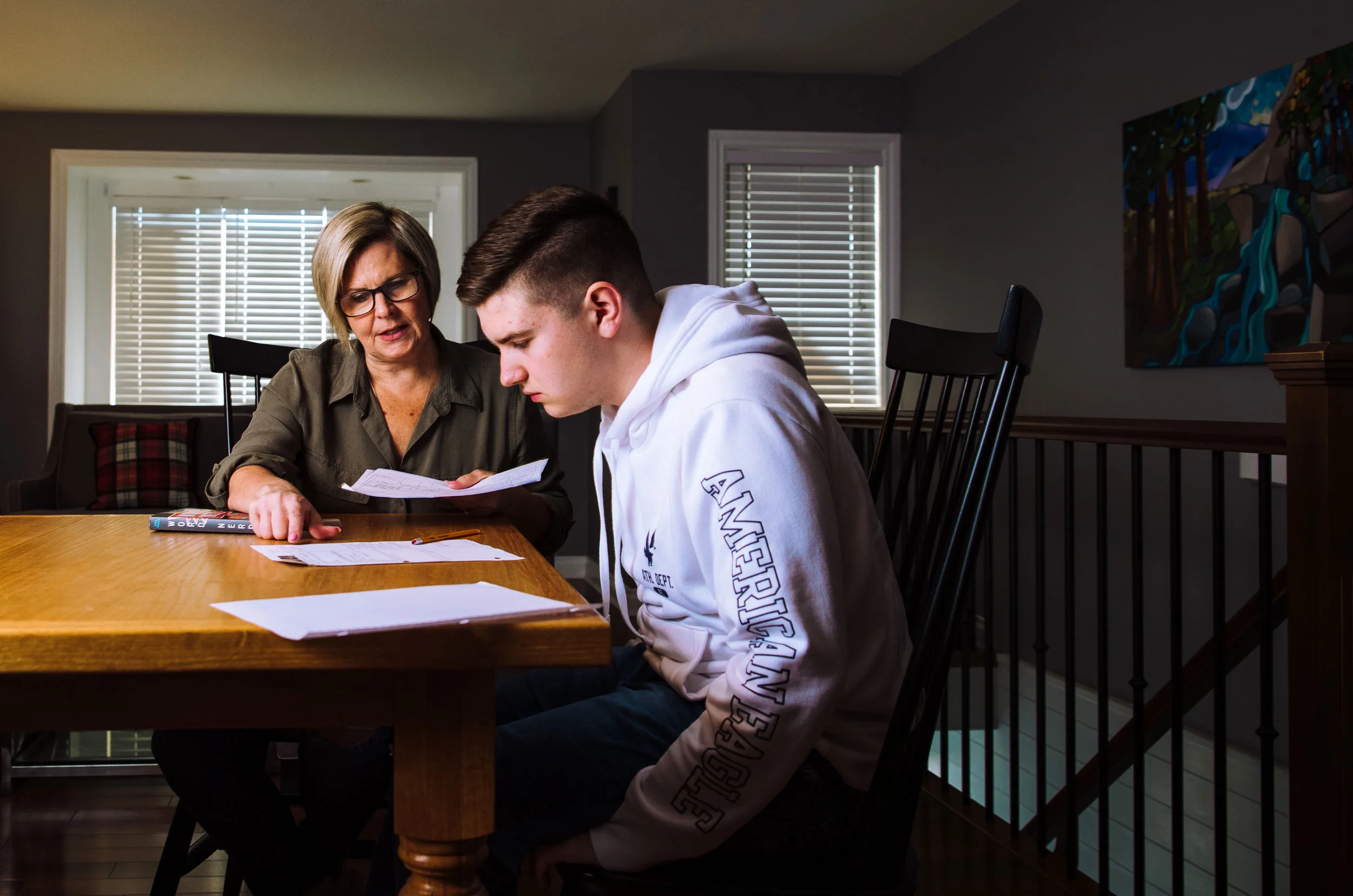Summary:
Press release commenting on BC Budget 2017 from Inclusion BC and community partners
PRESS RELEASE: For Immediate release
February 21, 2017
VICTORIA, BC— Community leaders welcome the 2017 BC Budget investments in social infrastructure as a positive step forward, while noting the need for further work, including comprehensive plans and more community/government collaboration, to improve the lives of vulnerable British Columbians.
Community Living BC
The 2017 budget increase for Community Living BC will help the provincial agency respond to expected growth in the number of adults with developmental disabilities requiring residential and community inclusion supports for the coming year.
However, remaining challenges include ongoing cost pressures, growing complexity of needs, accumulated waitlists and total caseloads that are projected to continue increasing in future years.
“We welcome the increase as a good step,” said Inclusion BC Executive Director Faith Bodnar. “But it is not enough to address the accumulation of unmet needs, as more youth transition to adult services each year, and families and support agencies struggle with more complex needs.”
The number of adults requiring CLBC supports has been growing by 5 – 6% annually in recent years and CLBC expects that trend to continue. The budget increase for 2017/18 reflects that trend. However, budget increases for the following two years (2018/19 and 2019/20) amount to 0.5% and 1% respectively, far below expected growth in the number of people served by CLBC.
“The funding gap creates severe stresses for community agencies and families who support people with developmental disabilities, in some cases resulting in acute crises,” Bodnar added.
Inclusion BC has urged a review of CLBC in light of challenges that include growing costs for aging adults and more complex needs including mental health, homelessness and addiction. “When people with developmental disabilities are forced to live in poverty, their challenges reflect those common to all people struggling with poverty,” Bodnar noted.
Persons With Disabilities (PWD) Benefits
Disability advocates hoped for a more significant increase to PWD rates than the $50 a month in the 2017 budget.
“Any increase to the rates is welcome, and we acknowledge that this is the second in the last 12 months,” Disability Alliance BC (DABC) Executive Director Jane Dyson said. “At the same time, an annual increase of $600 will provide little real improvement to the lives of people with disabilities who depend on provincial assistance and we welcome Finance Minister De Jong’s comments that we should continue to advocate for additional increases.”
BC’s Accessibility 2024 initiative includes both a commitment and a plan to make BC the most progressive province in Canada for people with disabilities by 2024. Advocates are urging that the Province build on this plan to resolve the constant lag between PWD rates and actual living costs.
“We need a plan to ensure that rates increase regularly, with indexing to inflation,” Dyson said. “We are also asking government to establish a stakeholder/government committee that allows us to work together on how such a system could work.”
DABC’s comments were echoed by other advocates, including Neil Belanger, executive director of the British Columbia Aboriginal Network on Disability Society. “The recent PWD $50 / monthly increase announced by the government was welcomed but unfortunately less than what we and our sister organizations had hoped. We need to continue to work with government to ensure an adequate level of assistance is achieved and the vision of Accessibility 2024 realized.”
“Our concern is that without further adjustments, people with disabilities will continue to live in poverty and that CLBC will continue to serve as a crisis response system instead of proactively building capacity to meaningfully fulfill its mandate to promote real community inclusion,” Bodnar added.
Mental Health
Research shows that almost 70% of BC children and youth living with mental health problems do not receive the treatment they need, according to the Canadian Mental Health Association (BC Division).
“Five of the most common mental health problems among children and youth – anxiety disorders, attention-deficit/hyperactivity disorder, substance use misuse, conduct disorder, and depression – are also preventable,” said CMHA-BC Policy Director Jonny Morris.
Today, the province announced a package of measures to respond to this treatment gap, improving child and youth mental health in BC schools, homes, and communities. This follows Friday’s announcement that the BC Government has signed on to the federal Health Accord, securing $655 million dollars for mental health and addictions care over the next ten years.
“Recent budgets have not emphasized mental health and addictions as much as Budget 2017,” said Morris. “It is encouraging to see a 20% increase in MCFD’s line item for child and youth mental health services. This is an important incremental step to the boost in funding needed to close the 70% treatment gap for BC children living with mental health and addiction problems.”
Affordable Housing
“As BC’s population surges, it is critical that the province continue to partner in building new rental supply of all types, particularly social housing that addresses homelessness,” said Kishone Roy, CEO of the BC Non-Profit Housing Association, speaking on behalf of advocacy group Housing Central.
However, he noted, increasing that supply is difficult under current rent supplement programs and income assistance that only offers $375 toward shelter for people in the deepest need.
“We believe that both building new supply, and providing more direct support to renters are necessary to tackle the affordable housing crisis,” Roy said.
Community supports
ASPECT BC (Association of Service Providers for Employability and Career Training) offered a similar message.
“Community-based organizations that provide employment services and training to British Columbians looking for work have long been challenged to help their clients with barriers to employment such as mental health, housing, and transportation,” said ASPECT-BC CEO Janet Morris-Reade.
“We are pleased to see increased support for these issues in this year’s budget,” Morris-Reade said. “This gives community-based organizations the resources from which to draw that will ultimately help their clients along the pathway toward meaningful and sustainable employment.”
Indigenous children & individuals living with disabilities
The 2017 Provincial Budget contained a number of positive steps forward for Indigenous children and individuals living with disabilities within British Columbia, said Neil Belanger, executive director of the British Columbia Aboriginal Network on Disability Society (BCANDS).
“However,” Belanger continued. “We need to see continued movement forward by the government to ensure that adequate resources, supports and services are made available for our most vulnerable citizens, and at levels not just to survive but to be able to thrive in our communities.”
Children & Families
“A lift in the Ministry serving B.C.’s most vulnerable children is always welcome,” says Rick FitzZaland, Executive Director of The Federation of Community Social Services of BC.
“This budget includes investments in childcare, services to children with special needs and mental health challenges, and a commitment to do better for children in care,” he added. “I am hopeful that the investment in children in care services will allow for the continued implementation of the recommendations stemming from our 2012 joint report with MCFD on residential services.”
About us
Aspect
The Association of Service Providers for Employability and Career Training (ASPECT) provides leadership, education, advocacy, and public awareness in support of community-based workforce development service providers. We work with government and stakeholders to ensure that the needs of those seeking a meaningful and sustainable livelihood are met. Our members are leading experts in the delivery of career training programs to improve chances of employability and job retention for their clients. The focus has always been on making our communities sustainable by promoting the value of using local people who understand the market and can deliver the needed training and services.
Contact: Janet Morris-Reade, 250 818-0306 jmoorris-reade@aspect.bc.ca
British Columbia Aboriginal Network on Disability Society (BCANDS)
BCANDS is an award winning Indigenous disability and health organization serving Indigenous individuals and families living with disabilities, within BC’s First Nation and non-First Nation communities. BCANDS has provided services for over 25 years and maintains approximately 6,000 client files annually.
Contact: Neil Belanger 250 381-7303 ext 208 exdir@bcands.bc.ca
Canadian Mental Health Association (CMHA)
CMHA is Canada’s most established mental health charity and the nation-wide leader and champion for mental health. CMHA helps people access the resources they need to maintain and improve mental health, build resilience, and support recovery from mental illness. Each year in BC alone, CMHA serves more than 100,000 people all across the province. For mental health and addiction information and resources visit www.cmha.bc.ca.
Contact: Jonny Morris 604 764-6226 jonny.morris@cmha.bc.ca
Disability Alliance BC (DABC)
DABC is a provincial organization that assists people with all disabilities. We provide direct services and programs to help ensure that British Columbians with disabilities live with dignity and independence in the community. Each year we assist hundreds of people with disabilities to access income supports, health services, and other programs. We also provide workshops and training, produce self-help and advocates guides.
Contact: Jane Dyson 778 895-6150 jwd@disabilityalliancebc.org
Housing Central
Housing Central brings together the BC Non-Profit Housing Association (BCNPHA), Co-op Housing Federation of BC (CHF BC) Co-op Housing Federation of Canada (CHF Canada), Encasa Financial, Community Land Trust and COHO Management Services Society. Housing Central collaborates on cross-sector partnerships that help impact public, policy, media awareness and deliver world-class education and events to support its vision of a safe, affordable home for everyone.
Contact: Cam McAlpine 250-961-6611 cmcalpine@prmedia.ca
Inclusion BC
Inclusion BC is a provincial federation whose members include community agencies, families and self-advocates, and which has led the movement away from institutions since 1955. We are dedicated to advancing rights, promoting abilities and building awareness as we work to support full citizenship and inclusion for people with developmental disabilities and their families. Our vision is a world in which we all belong. For more, visit inclusionbc.org.
Contact: Faith Bodnar 604 764-2591 fbodnar@inclusionbc.org
Federation of Community Social Services of BC
The Federation is a group of community-based social services organizations that influence decision-making to improve the wellbeing of communities. We represent more than 140 member agencies serving over 250 communities across B.C. both on and off recognized First Nations territories. Federation members support communities through a wide spectrum of services such as support for those with disabilities, employment programs, early childhood education, homeless outreach and family programs; they employ more than 6000 British Columbians, and represent over $500 million of community investment in B.C.’s social service sector.
Contact: Rick FitzZaland 250 480-7387 rick@fcssbc.ca


